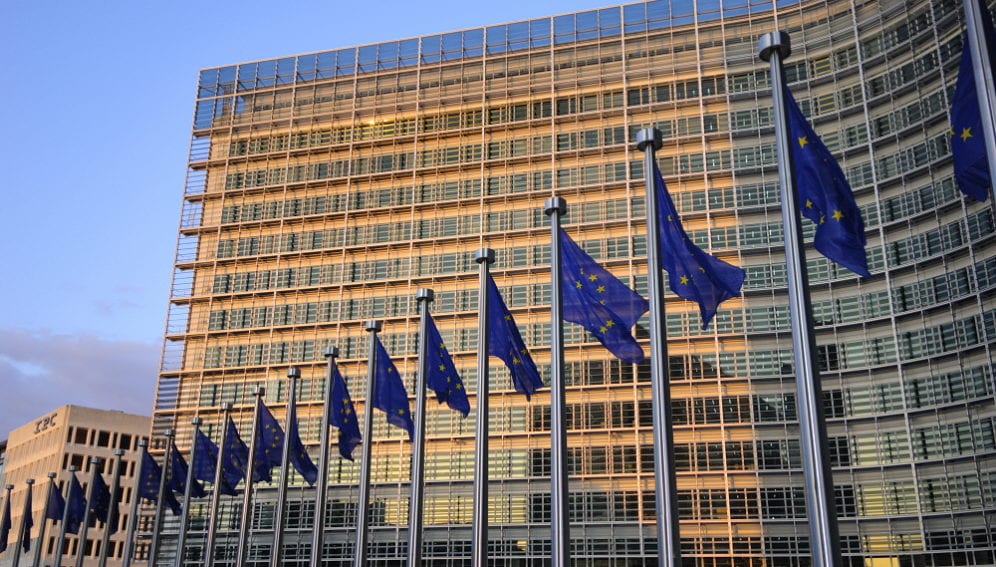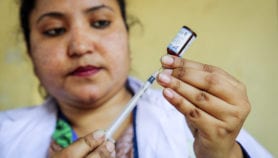By: Aamna Mohdin
Send to a friend
The details you provide on this page will not be used to send unsolicited email, and will not be sold to a 3rd party. See privacy policy.
A new European Union plan to tackle “unprecedented levels” of intellectual property infringement by withholding funding from developing countries has been criticised by experts who say it may do more harm than good.
Released last month (1 July), the strategy updates a 2004 action plan which aimed to promote intellectual property rights (IPR) and combat piracy and counterfeiting. Such activities cost the EU an estimated €8 billion (almost US$10.6 billion) a year.
The revised plan suggests that some developing countries are attempting to grow their economies by gaining access to foreign technology by illegitimate means.
The plan says the European Commission will prevent developing countries that persistently break IPR rules from participating in, or receiving funding from, EU programmes. Programmes financed by the European Development Fund or the Development Cooperation Instrument will not be affected.
“Most arguments about massive infringement mainly relate to trademark issues.”
Carlos Correa, South Centre
“Our businesses, creators and inventors should be duly rewarded for their creative and innovating efforts. For that, and to maintain the incentives that drive innovation and creativity, we must keep working on improving standards with our international partners,” said EU trade commissioner Karel de Gucht in a press release.
“We will remain open to adapting our approach according to their levels of development, but underline the positive impacts that intellectual property can have on growth, jobs and consumers."
But critics remain sceptical about the data and arguments presented in the new strategy, and argue that its aims are conflicting. It also fails to take into account the needs of developing countries, they say.
Carlos Correa, special advisor on trade and intellectual property at the South Centre, says the document’s estimates of the losses generated by the violation of IPRs are unreliable, and that it does not distinguish between different forms of IPR infringement.
“There is a great difference between cases relating to trademark confusion or counterfeiting, on the one hand, and infringement of patents or copyright, on the other. Most arguments about massive infringement mainly relate to trademark issues,” he says.
The social and economic implications are quite different, Correa tells SciDev.Net. Infringing patents or copyright can allow access to essential goods and knowledge, while the social impact of trademark infringement is likely to be less significant. He also argues that there is no universal concept of what an 'infringement' is.
“The exceptions allowed under European legislation may be narrower than those established in other countries,” Correa says, adding that the EU should not apply its own ideas about infringement to other countries and instead be consistent with the internationally applicable Trade-Related Aspects of Intellectual Property Rights (TRIPS) Agreement.
The strategy aims for dialogue with not just rights-holders, but also stakeholders such as public authorities and civil society. It also focuses on “enhancing data collection” to better inform the policy debate.
The action plan will focus on ‘priority countries’, such as Brazil, China and India, and aims to work with them to improve their IP systems through dialogue and appropriate technical assistance.
It may also offer flexibilities where member states of the World Intellectual Property Organisation can enjoy a degree of freedom to implement IP laws that are most suited to their specific circumstances and capacities. If dialogue fails, the commission will turn to enforcement procedures.
Ahmed Abdel-Latif, senior programme manager for innovation, technology and intellectual property at the International Centre for Trade and Development, says that these flexibilities are important, as they were not present in the 2004 predecessor.
But he warns that the strategy may not have taken developing countries’ views sufficiently into account, and that retaliatory moves such as restricting funding contrast with the stated intention of “enhancing dialogue” with developing countries.
He is also concerned that plan’s greater reliance on ‘soft law’ measures, such as voluntary codes of practice, is not used to circumvent existing legislative processes.
The strategy suggests that IPRs could play an important role in promoting development, as emerging economies are increasingly becoming exporters of IP-intensive goods, and would therefore benefit themselves from stronger IP regimes.
But Correa remains unconvinced, saying that there is no evidence that IPRs contribute to innovation or economic growth in developing countries, and in fact entail significant social costs such as preventing poor people’s access to drugs.
“Economists, notably in the US, are very sceptical about the role of IPRs in promoting innovation. Many have concluded that the IPRs system has to be revised, or even abolished in the case of patents," he says.
“There is growing understanding among the public that IPRs cannot be designed to just serve the interests of a few corporations, and that basic rights to education, culture, food and health, or even free speech, can be undermined if the relentless expansion of IPRs is allowed to continue.”














